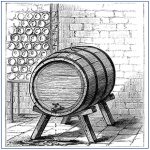Who Needs A Certificate of Label Approval – COLA?
The U.S. Federal Government, by way of the Alcohol and Tobacco Tax and Trade Bureau (TTB), reviews and approves, or rejects, every singe wine, beer, or spirit label that appears on a bottle sold in interstate commerce. This means, a label application is required to be submitted to, and approved by, the TTB prior to the product’s sale at market.
Lindsey A. Zahn, Esq. is an alcohol beverage and food attorney at Lehman Beverage Law, PLLC. Ms. Zahn has previously counseled wine, beer, and spirits companies on licensing and compliance, federal and state labeling, customs regulations, supplier agreements, and advertising and promotions. She is an award-winning author on wine law, publishes a leading wine law blog called On Reserve, and has traveled to over a dozen wine regions in the U.S. and Europe.
John D. Messinger, Esq. is an attorney at Lehrman Beverage Law, PLLC. He joined the firm in 2006 as a law clerk, after working as an intern and consultant with the World Bank, Legal Operations and Policy. John focuses on TTB labeling and formulation matters and also state compliance issues.
John has a particular interest in beer and craft beer issues, and he is an avid small-scale brewer.In this CLE class clip, Lindsey and John discuss Certificate of Label Approval – COLA.
The process is not always straightforward. For example, a label submitted to TTB often entails a lot of back and forth between the agency and the applicant, as well as corrections made to the label, before an approval is obtained.
The Federal Alcohol Administration Act authorizes TTB to enact labeling regulations for two purposes. First, as a means to provide consumers with adequate product information; secondly, to prevent consumer deception. The TTB often refuses to approve labels that cut against either regulation. Given that the terms are not clearly defined, the process is not without problems.
Importers of beer, wine and distilled spirits need to apply for a Certificate of Label Approval (COLA), on their federal basic importer’s permit, and the COLA must be obtained prior to importation of any product into the United States.
Wineries and Distilleries, if bottling the product themselves, are required to have a COLA, prior to bottling any product. Breweries, on the other hand, are only required to have a COLA if they are involved in interstate commerce. Wineries, breweries, and distilleries only selling in one state, are exempt from needing a COLA. In addition, imported beer, wine, or distilled spirits for sampling, or trade shows can receive a COLA waiver.








